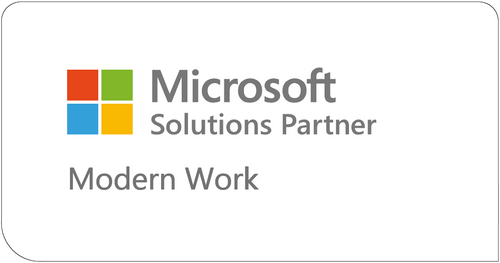Microsoft 365 Experts
Unlock the full potential of your workforce with Microsoft 365 from The One Point—secure, cloud-based tools that enable effortless collaboration, communication, and productivity from any location, on any device.




Unlock the full potential of your workforce with Microsoft 365 from The One Point—secure, cloud-based tools that enable effortless collaboration, communication, and productivity from any location, on any device.






The way we work has changed. Today’s businesses need flexible, cloud-first tools that empower their teams to stay connected and productive from any location. With Microsoft 365, your organisation gains access to the full suite of Microsoft Office apps—Word, Excel, Outlook, Teams, and more—enhanced by enterprise-grade cloud storage, collaboration features, and robust cybersecurity protection.
At The One Point, we take Microsoft 365 further by delivering end-to-end implementation, support, and licensing designed around your exact business needs. Whether you’re migrating from legacy software or scaling up with confidence, we’re your trusted IT partner for success in the cloud.
Whether you’re a small business or an enterprise, Microsoft 365 provides a single, unified platform that adapts to your workforce.
Empower your workforce with secure access to documents, emails and tools from any location or device.
Enhance communication with integrated chat, video meetings, and co-authoring features that keep your teams connected and working together.
Safely store, share, and back up files in the cloud with advanced security controls and versioning.
Benefit from automatic updates to the latest versions of Word, Excel, Outlook, PowerPoint, and more.
Easily manage users, permissions, and security policies across devices to ensure compliance with industry regulations.
Choose flexible licensing options that evolve with your business, ensuring you only pay for what you need.
When you choose The One Point, you’re not just buying licences—you’re gaining a team of experts to make sure everything works seamlessly. We offer:
Bespoke deployment and user onboarding
Hassle-free email and data migration
24/7 UK-based support and issue resolution
Licence reviews and cost optimisation
Security audits and best-practice configuration
Integration with your wider IT and telecoms systems

Microsoft 365 offers everything your team needs to work productively, securely, and flexibly—whether in the office or on the move. With cloud-powered collaboration tools and built-in security, it’s the productivity suite for modern, agile businesses.




We’ll help you select the right plan—whether it’s Microsoft 365 Business Basic, Standard, Premium, or Enterprise options. As your business evolves, we’ll ensure your licensing evolves too, avoiding unnecessary costs while maintaining full functionality.
Talk to our Microsoft 365 experts today.
The One Point has achived a Microsoft AI Cloud Partner – Modern Work designation formerly known as a Microsoft Gold Certified Partner. A partner with this designation is an organisation that provides products or services related to Microsoft or supports those products. They must maintain high standards of service and excellence to keep their certification.
Microsoft has a rigorous certification process to become a Certified Partner. Looking out for this designation is critical because it means the partner has met Microsoft’s highest standards for excellence and customer satisfaction.
A Microsoft Solutions Certified Partner is an expert in Microsoft technology and can help your business implement and use these technologies to meet its specific needs. They will also provide excellent customer service and support.
These Certified Partners are typically experts in implementing Microsoft technology solutions. They also offer premium customer service and support at a level Microsoft themselves are proud to associate themselves with.
Microsoft 365 for Business includes a comprehensive suite of cloud-based productivity tools and services designed to support modern workplace needs. It features industry-leading Office applications like Word, Excel, PowerPoint, Outlook, and OneNote—available both online and offline. It also includes Microsoft Teams for real-time collaboration, OneDrive for Business with 1TB of secure cloud storage per user, and SharePoint for team file sharing and intranet solutions.
Yes, with an Office 365 (now Microsoft 365) Business subscription, each licensed user can install Office apps on multiple devices—including PCs, Macs, tablets, and smartphones. This means you can work seamlessly across up to five desktops, five tablets, and five mobile devices per user, all under one subscription.
Get in touch with us for all your business needs.
Monday – Friday, 8:00AM – 5:30PM
Alternatively give us a call: 0333 247 6000
Humber Office
The View,
Bridgehead Business Park,
Hull,
Hessle,
HU13 0GD.
North East Office
The Catalyst,
3 Science Square,
Newcastle Helix,
Newcastle upon Tyne,
NE4 5TG
West Yorkshire Office
Radius,
One City West,
Leeds,
LS12 6NJ
Google Pixel 9: Everything you need to know Overview...
Staying Cyber Safe While Travelling: Don't Let Hackers Ruin...
Understanding Data Breaches and How They Impact Your Business...